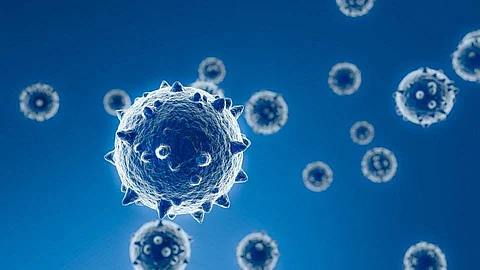

A team of researchers has identified the most toxic proteins made by SARS-COV-2 -- the virus that causes COVID-19 — and then used an FDA-approved cancer drug to blunt the viral protein's detrimental effects.
In their experiments in fruit flies and human cell lines, the team discovered the cell process that the virus hijacks, illuminating new potential candidate drugs that could be tested for treating severe Covid-19 disease patients.
"Our work suggests there is a way to prevent SARS-COV-2 from injuring the body's tissues and doing extensive damage," said researcher Zhe "Zion" Han from the University of Maryland.
The researcher notes that the most effective drug against COVID-19, remdesivir, only prevents the virus from making more copies of itself, but it does not protect already infected cells from damage caused by the viral proteins.
SARS-COV-2 infects cells and hijacks them into making proteins from each of its 27 genes.
For the study, published in the journal in Cell & Bioscience, the team introduced each of these 27 SARS-CoV-2 genes in human cells and examined their toxicity. They also generated 12 fruit fly lines to express SARS-CoV-2 proteins likely to cause toxicity based on their structure and predicted function.
The researchers found that a viral protein, known as Orf6, was the most toxic killing about half of the human cells.
For the remaining experiments, the researchers focused on just the most toxic viral protein, so they could figure out what cell process the virus hijacks during infection.
The team found that the virus' toxic Orf6 protein sticks to multiple human proteins that have the job of moving materials out of the cell's nucleus -- the place in the cell that holds the genome, or the instructions for life.
They then discovered that one of these human moving proteins, targeted by the virus, gets blocked by the cancer drug selinexor. The researchers tested selinexor on human cells and fruit flies making the toxic viral protein to see if the drug could help reverse the damage.
Selinexor, like many cancer drugs, is itself toxic. However, after accounting for its toxic effects, the drug improved human cell survival by about 12 per cent.
